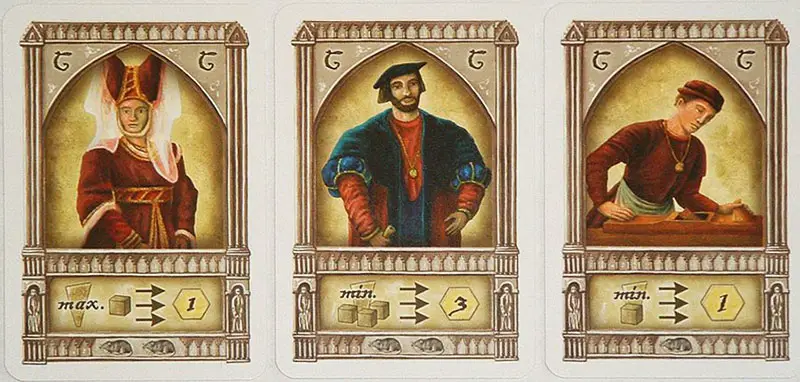
18 new person cards (6 each of gray A, B, and C).
Play the game using the original rules except for the exceptions listed here.
Change the game set up as follows: Sort the 27 gray cards by the letters on the back: A, B, and C. Shuffle the 3 sets of 9 cards and randomly select 3 from each stack.
Turn these cards face up for all players to see, and place the other 18 cards back in the box. Shuffle the 3 cards from each set, then place them in face down stacks, in letter order, as in the original game (A's on top, B's in the middle, C's on the bottom).
The six cards for period A
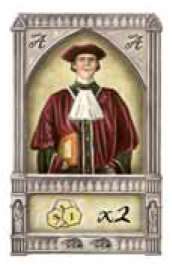
When hiring the manager, players double their prestige points.
Thus, players immediately take the number of prestige points (from the supply) as they currently have, thereby doubling their total.

When hiring the nurse, players take one influence marker from the general supply, place it in their hospital, and move their rat marker one space backwards.

When hiring the scholar, players immediately execute their third action card.
Thus, when this person is available, players keep their third action cards face down in their play areas, and discard them after phase 4.
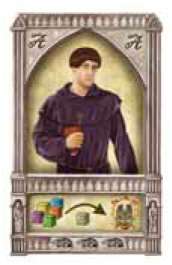
When hiring the priest, players take one influence marker from the general supply and place it onto the central Notre Dame sector. Nothing else happens.
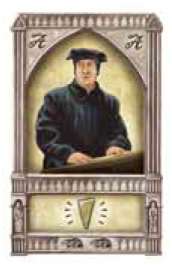
When hiring the procurator, players execute the action of any one of their seven sectors according to the influence markers (incl. the trusted friend) in it.
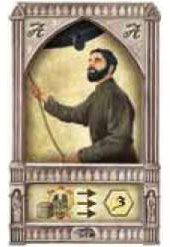
When hiring the bell-ringer, players take three prestige points for each influence marker of their color on the central Notre Dame sector.
The six cards for period B
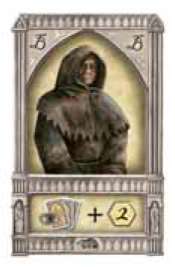
When hiring the spy, players may look at all remaining gray person cards in the stack (without changing their order!), and also take 2 prestige points.
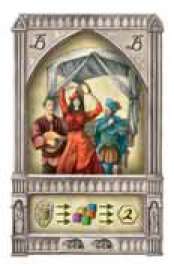
When hiring the gypsies, players may return any number of their influence markers (not the trusted friend) from the board back to the general supply. For each returned marker, players take 2 prestige points.

When hiring the coachman, players may use all messages they have collected of one type.
Example: Anna has collected the following 5 messages: 2 of "4 PP", 2 of "2 PP + 1 marker", and 1 of "1 PP + 1 coin". Anna can take either 8 PP or 4 PP and 2 markers or 1 PP and 1 coin.
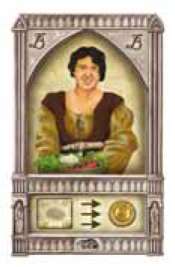
When hiring the trader, players take 1 gold coin from the supply for each of their marketplaces that don't have message tokens on it.
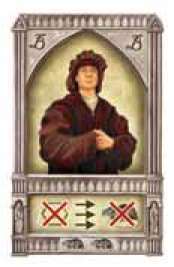
When hiring the benefactor, players may return any number of gold coins to the supply. For each returned coin they may move their rat marker one place backwards (but never below 0).
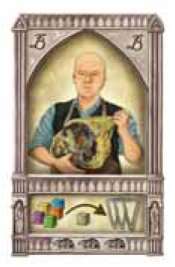
When hiring the butcher, players place one influence marker from the general supply into each empty sector in their borough. The corresponding actions are not executed.
The six cards for period C

When hiring the advisor, players may hire two additional persons (each costs one coin!).
Players may either hire one other person twice, or both other persons once. Players may not hire the advisor again!
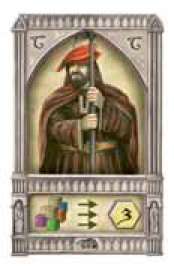
When hiring the guard, players take 3 prestige points for each 2 of their influence markers in the general supply.
Example: Leo has 5 influence markers in the general supply and thus takes 6 prestige points.
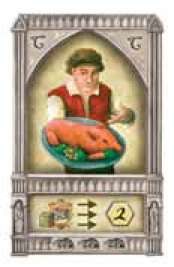
When hiring the host, players take 2 prestige points for each influence marker in their hotel (including the trusted friend).
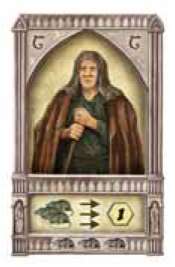
When hiring the gravedigger, players take prestige points from the supply, the number of points corresponding to the current plague value.
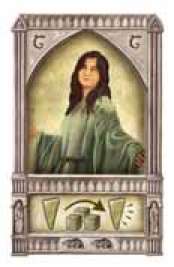
When hiring the actress, players move all influence markers (incl. their trusted friend) from a sector (not Notre Dame) to any other sector in their borough (not Notre Dame!) and execute the corresponding action.
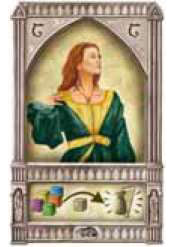
When hiring the mistress, players take one influence marker from the general supply, place it in the sector with their trusted friend, and execute the corresponding action.
(If the trusted friend is not yet in the borough, the mistress evokes no action).
Continue Reading
